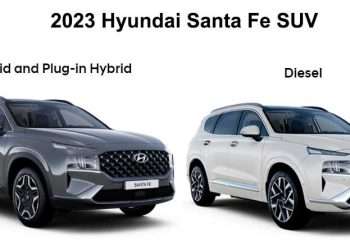Paving the Way to a Greener Future: Embrace the Electric Revolution
In a world witnessing the unfolding impact of climate change, the global shift towards sustainable living has never been more vital. As part of this colossal endeavour, electric vehicles (EVs) are at the forefront, embodying not just a shift in technology but also signalling an irreversible transition in our lifestyle and societal norms.
With carbon emissions from road transport being a significant contributor to the UK’s overall greenhouse gas emissions, it’s little wonder that the government has set a deadline. By 2030, the sale of new petrol and diesel cars will be banned, marking a bold stride towards the country’s commitment to reach net-zero emissions by 2050. This step signifies the UK’s unyielding determination to combat climate change and exemplifies the country’s pledge to clean, green, and sustainable living.
Yet, for many prospective buyers, this major transition from traditional petrol or diesel vehicles to EVs can seem daunting. The questions are aplenty: What does it mean to own an EV? How different is it from driving a conventional car? What infrastructural changes does it necessitate? How cost-effective is it in the long run?
This guide aims to provide insightful facts to answer these questions and more, seeking to deconstruct the intricacies of the process and inspire you to be a part of this accelerating movement towards sustainable transportation. Understanding this transition is not just about adopting a new mode of transportation; it is about embracing a whole new perspective on mobility and playing an active role in protecting our shared environment.
With this in mind, let’s delve into the world of EVs, examine the practicalities of ownership, explore the financial implications, and understand the state of the national EV infrastructure. So, fasten your seatbelts and prepare to join the electric revolution. Your green journey begins here.
Installation and Set-Up: Laying the Foundations
The journey to EV ownership begins at home with the installation of a dedicated charging unit.
Breaking Down Costs: A standard 7kW home fast charger, including the charger and its installation, typically costs between £800 and £1,200. However, if you seek a more rapid charging solution, a 22kW charger can cater to your needs. Keep in mind that these require a three-phase power supply, which is not standard in UK households. Upgrading your supply to accommodate this can cost from £3,000 to over £15,000, contingent on various factors such as the nature of your home and its electrical supply.
Advancements in Charger Technology: Modern chargers, also known as ‘wallboxes’, are no longer just utilitarian devices. Priced from around £600, these now often include advanced features such as Wi-Fi connectivity and dedicated smartphone apps, offering user-friendly monitoring and control. For a higher-end experience that might include features like an independent LCD display or solar panel compatibility, expect to invest between £900 and £1,200.
Cost Influencers: Multiple factors can influence the final cost of charger installation, including the location of your internal electricity distribution board, the structure of your home, the condition of your house’s electrical system, the complexity of the charger installation, and the addition of extra features such as a floodlight.
The EV Chargepoint Grant: Capitalise on Financial Support
To help individuals make the transition to electric, the UK government introduced the EV Chargepoint Grant in April 2022, replacing the previous Electric Vehicle Homecharge Scheme (EVHS). This grant can cover up to 75% of the charger installation cost, up to a maximum of £350, available to flat owners and renters across the UK (excluding the Channel Islands and the Isle of Man).
Operating Costs: Emphasising the Economy of Electric Drive
Switching to an electric vehicle doesn’t just contribute to environmental sustainability; it can lead to significant cost savings too. Charging an average electric vehicle such as a Nissan Leaf or Peugeot 208 fully costs between £10 and £17. When contrasted with the £50 or more required to fill a tank of petrol or diesel, the economic advantage of EVs becomes evident.
Charging Infrastructure: A Panoramic View of the National Landscape
As of June 2023, the UK boasts 44,408 EV charging points across 25,521 locations, a substantial 36% increase from the previous year. Yet, the Society of Motor Manufacturers and Traders (SMMT) warns that to keep up with the anticipated demand, the UK might need to install 2.3 million charging points by 2030, implying a significant scaling up of infrastructure. Presently, Greater London and the South East are leading the race with the most EV charging stations.
Conclusion: Ignite Your Contribution to a Greener Future
Understanding the nuances of transitioning from conventional engines to electric vehicles is a crucial step towards adopting a more sustainable and cost-effective lifestyle. This guide provides a comprehensive overview of the key considerations and facts, aiming to demystify the process and encourage your transition to EV ownership. With the global momentum towards greener transportation growing stronger, it’s the perfect time to consider how you can join the electric revolution, actively contributing to a cleaner, brighter future.
The Bournemouth Observer: Navigating the road less travelled in motoring.









